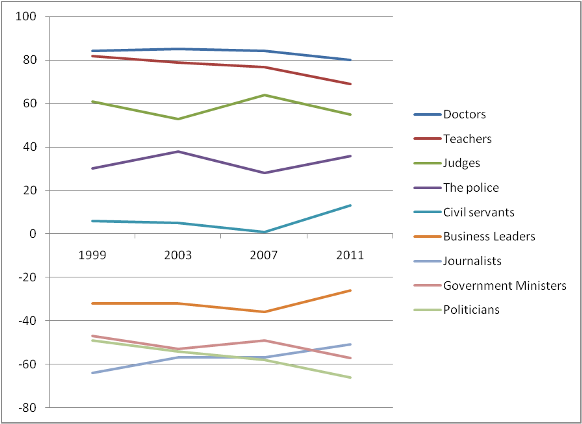The incredible and the unbelievable
The publication yesterday of Ipsos Mori’s Veracity Index again shows the low regard in which the public hold ministers and politicians.
The publication yesterday of Ipsos Mori’s Veracity Index again shows the low regard in which the public hold ministers and politicians. But it begs the question of why they pay so much attention to the press.
